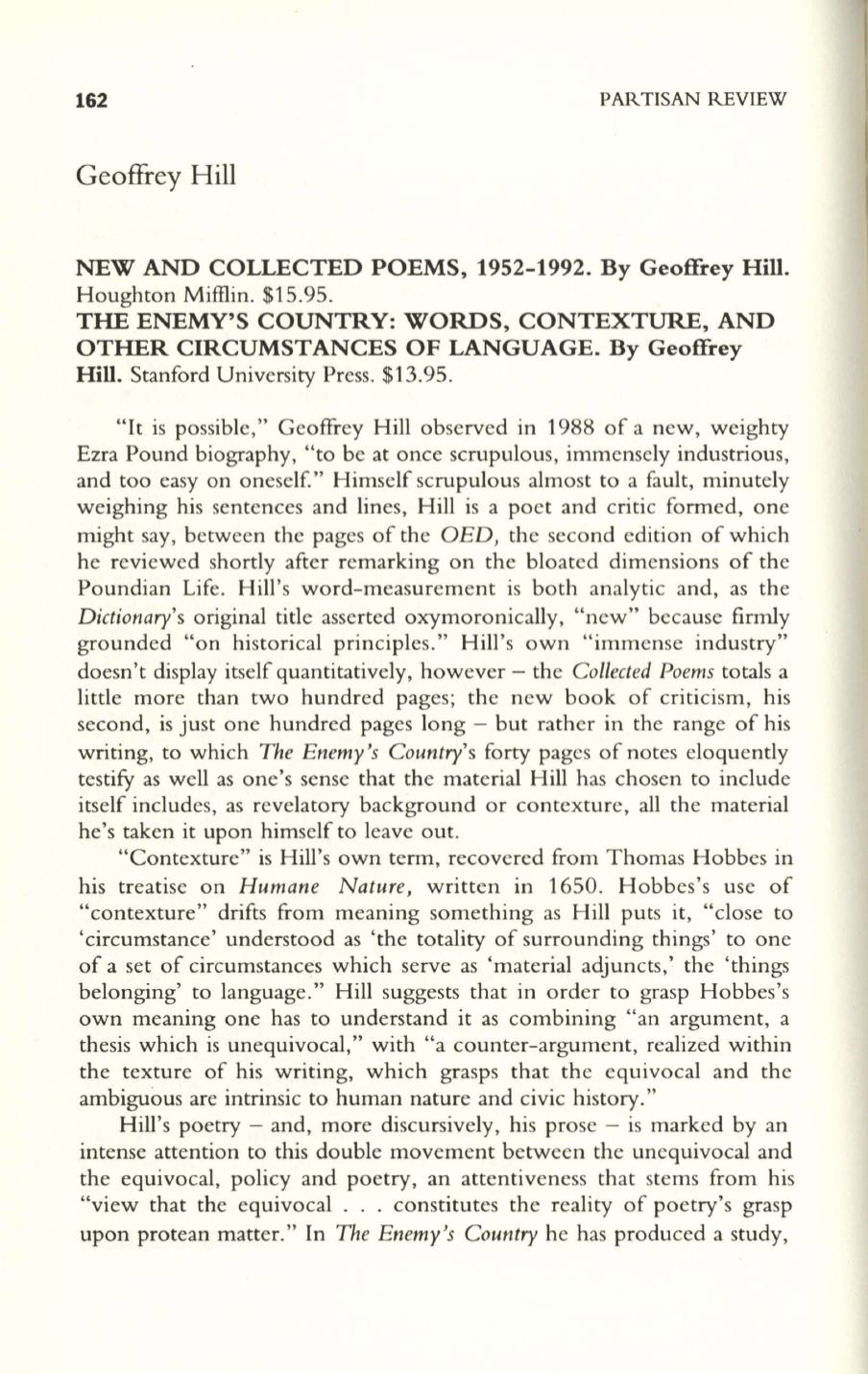
162
p
ARTISAN REVIEW
Geoffrey
Hill
NEW AND COLLECTED POEMS, 1952-1992. By Geoffrey Hill.
Houghton Mifflin. $15.95.
THE ENEMY'S COUNTRY: WORDS, CONTEXTURE, AND
OTHER CmCUMSTANCES OF LANGUAGE. By Geoffrey
Hill.
Stanford University Press. $13.95.
"It
is possible," Geoffrey Hill observed in 1988 of a new, weighty
Ezra Pound biography, "to be at once scrupulous, immensely industrious,
and too easy on oneself" Himself scrupulous almost to a fault, minutely
weighing his sentences and lines, Hill is a poet and critic formed, one
might say, between the pages of the
OED,
the second edition of which
he reviewed shortly after remarking on the bloated dimensions of the
Poundian Life. Hill's word-measurement is both analytic and, as the
Dictionary's
original title asserted oxymoronically, "new" because firmly
grounded "on historical principles." Hill's own "immense industry"
doesn't display itself quantitatively, however - the
Collected Poems
totals a
little more than two hundred pages; the new book of criticism, his
second, is just one hundred pages long - but rather in the range of his
writing, to which
The Enemy's Country's
forty pages of notes eloquently
testify as well as one's sense that the material Hill has chosen to include
itself includes, as revelatory background or contexture, all the material
he's taken it upon himself to leave out.
"Contexture" is Hill's own term, recovered from Thomas Hobbes in
his treatise on
Humane Nature,
written in 1650. Hobbes's use of
"contexture" drifts from meaning something as Hill puts it, "close to
'circumstance' understood as 'the totality of surrounding things' to one
of a set of circumstances which serve as 'material adjuncts,' the 'things
belonging' to language." Hill suggests that in order to grasp Hobbes's
own meaning one has to understand it as combining "an argument, a
thesis which is unequivocal," with "a counter-argument, realized within
the texture of his writing, which grasps that the equivocal and the
ambiguous are intrinsic to human nature and civic history."
Hill's poetry - and, more discursively, his prose - is marked by an
intense attention to this double movement between the unequivocal and
the equivocal, policy and poetry, an attentiveness that stems from his
"view that the equivocal ... constitutes the reality of poetry's grasp
upon protean matter." In
The Enemy's Country
he has produced a study,


